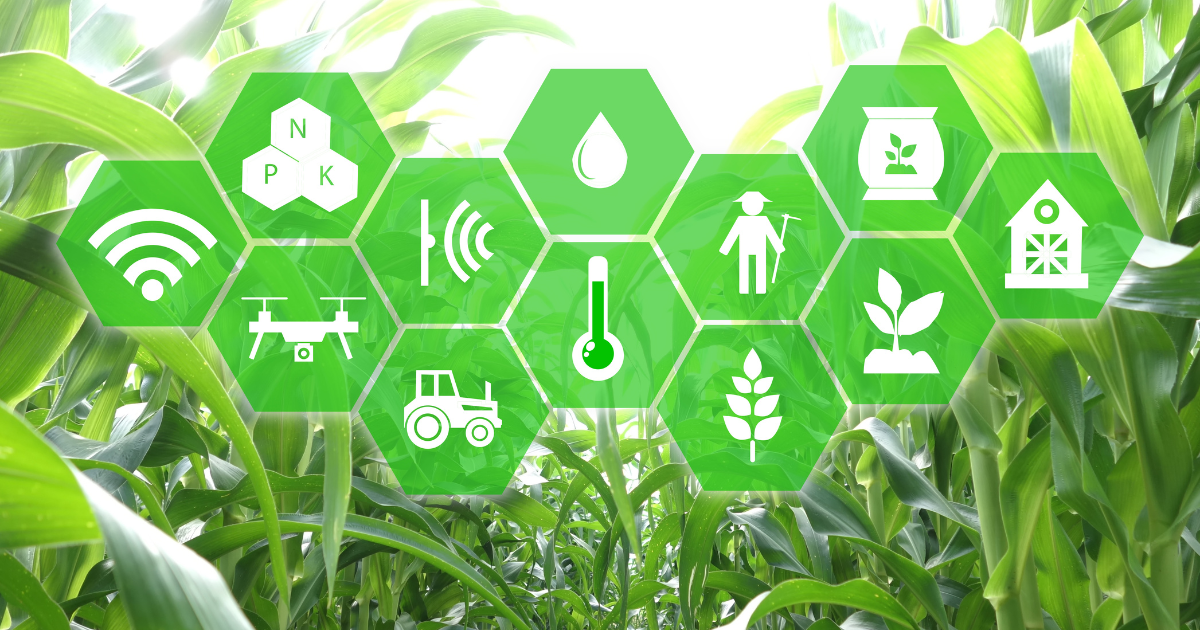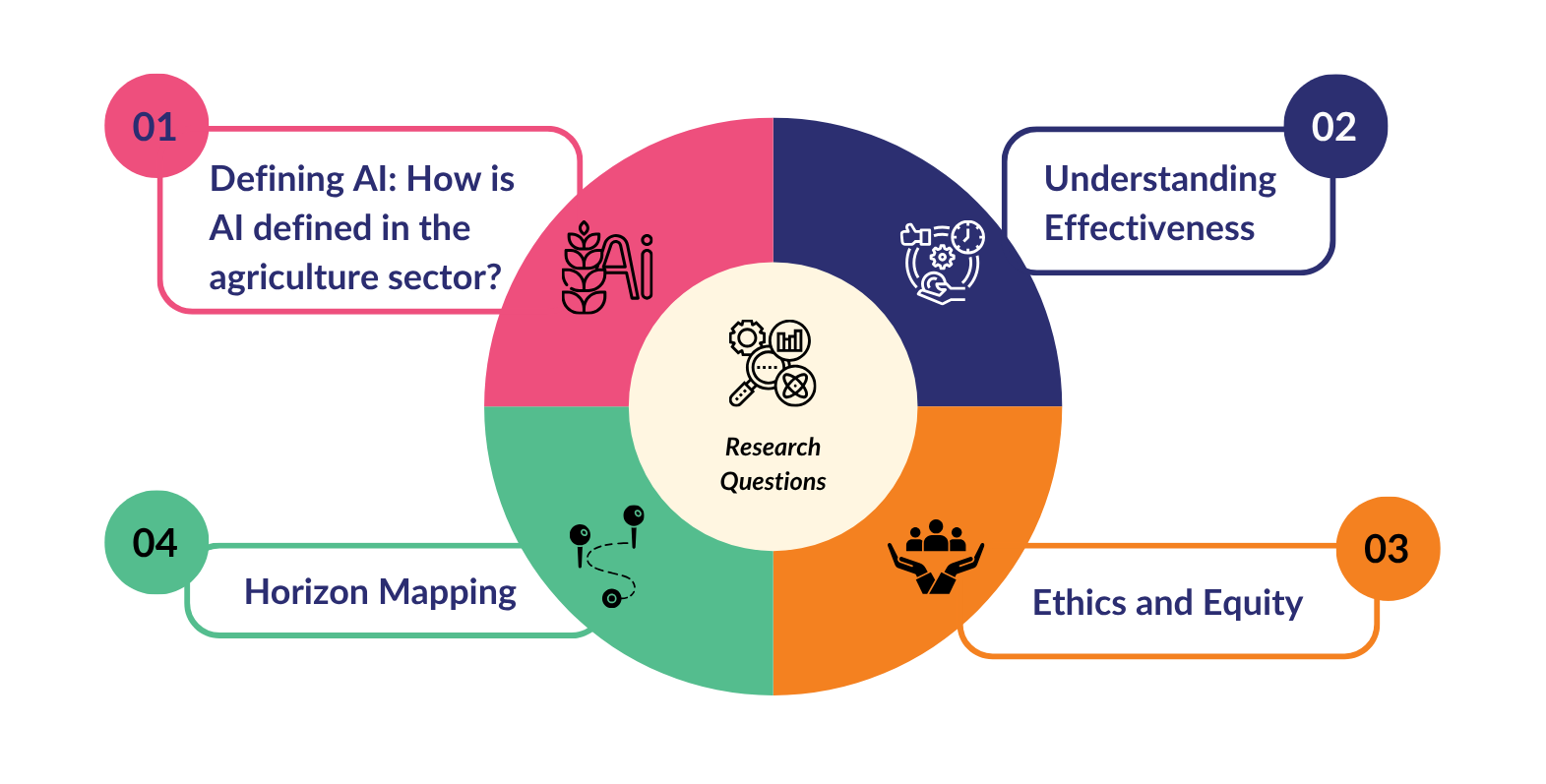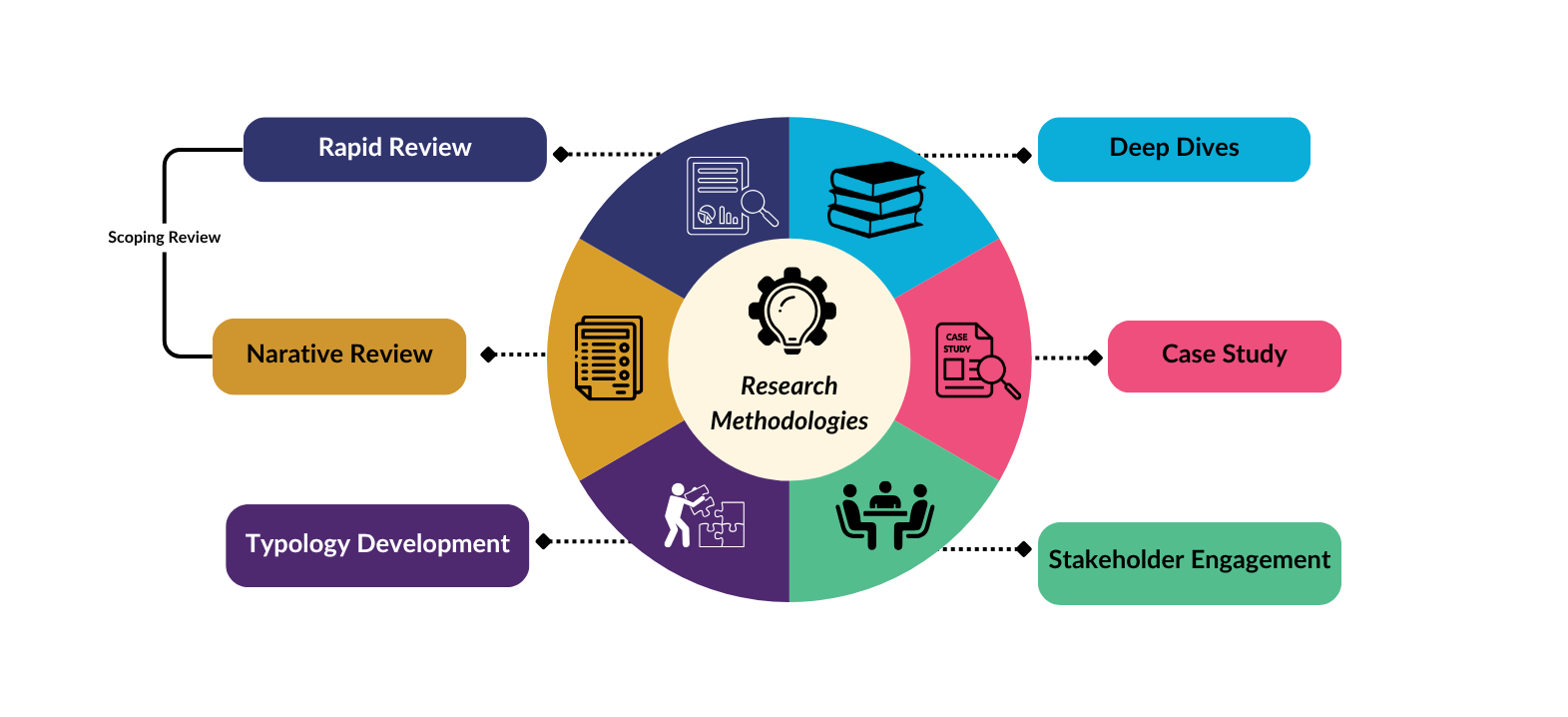

The intersection of agriculture and AI is rapidly evolving, with significant potential to transform global agrifood systems. While the global interest in AI-enabled solutions within the agricultural sector is increasing, a comprehensive understanding of their effectiveness, alignment with institutional, social and environmental contexts, and implications for equity remains limited.
This landscape study has been commissioned to Athena Infonomics by the FCDO’s Research Commission Centre (RCC) and 3ie due to their specific interest in understanding how AI can effectively address extreme poverty worldwide (FCDO 2023). One key area of enquiry is how these technologies can help farmers in L&MIC settings.
The study examines current use of AI-enabled solutions in agriculture, addresses key research gaps, and informs the existing body of evidence. While AI is increasingly applied in agriculture, there is limited comprehensive analysis of how these technologies are deployed to tackle specific agricultural issues.

The study goes beyond a purely technological perspective by incorporating broader socio-economic and contextual considerations. It aims to provide a holistic understanding of the interplay between technological innovation and local agricultural systems. Much of the evidence focuses on AI tool availability. However, this study expands on this by examining their impact on agricultural productivity, ethical and equity considerations, adoption barriers, and future trajectories.
To answer these diverse research questions the study employs a mixed method approach, where each methodological component is selected on the basis of its ability to address specific research questions while considering the strengths and limitations associated with each method.

To promote greater uptake of the study’s findings, the research team has developed a suite of targeted knowledge products and implemented a range of dissemination strategies to engage diverse stakeholders. These efforts aim to make complex evidence more accessible and support informed decision-making across policy and practice.
The Rapid Review Blog and Rapid Review Evidence Explainer distill key insights from peer-reviewed literature on AI applications in agriculture, while the Narrative Review Blog and Narrative Review Evidence Explainer provide broader context by synthesizing insights from non-peer-reviewed and opinion-based sources. A dedicated blog summarizing key learnings from stakeholder engagement sessions captures real-world perspectives, needs, and concerns gathered through consultations with a wide range of actors. In addition, dissemination efforts include region-specific analyses – such as case studies and deep dives featured in "The Future of AI in Sub-Saharan Africa's Agriculture: Opportunities, Risks, and Governance" as well as blogs in Spanish focusing on Latin America. Together, these products and outreach efforts aim to inform responsible, inclusive, and context-sensitive AI adoption in agriculture.
Read the full report on the GRTD website: Rapid Review & State of Full Art
For more project details, reach out to Zeba Siddiqui and Monisha L.
Image used for representational purposes only; source: Canva